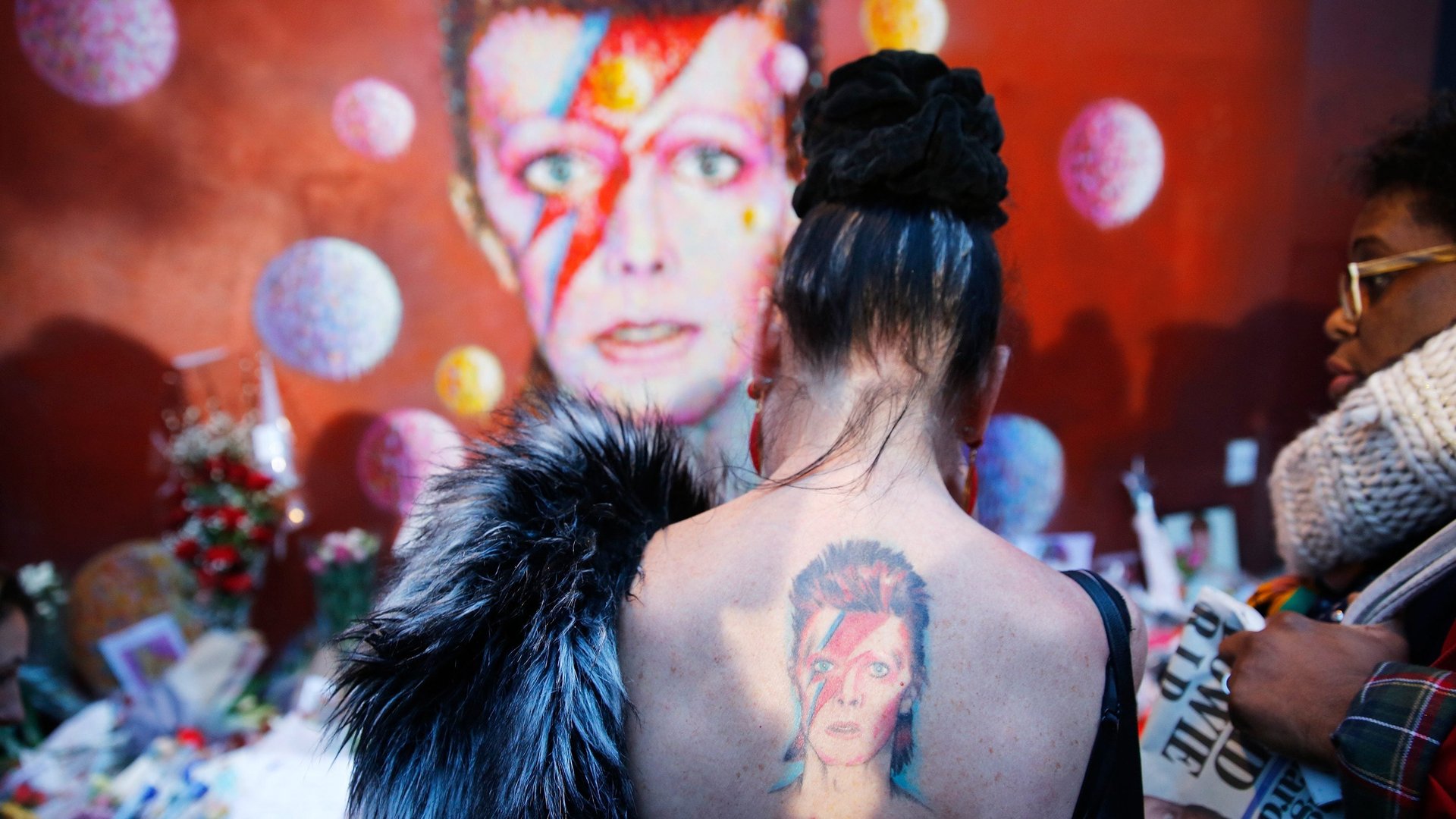A David Bowie sing-along is among the highlights of New York’s next philosophy festival
David Bowie was not a philosopher, but he was deep. So deep that he managed to plumb the depths of human solitude and articulate it in three-minute bursts of pop music, says Simon Critchley, an actual philosopher who is orchestrating a sing-along dance party featuring the late pop star for the Night of Philosophy festival in New York City this weekend (Oct. 5–6).


David Bowie was not a philosopher, but he was deep. So deep that he managed to plumb the depths of human solitude and articulate it in three-minute bursts of pop music, says Simon Critchley, an actual philosopher who is orchestrating a sing-along dance party featuring the late pop star for the Night of Philosophy festival in New York City this weekend (Oct. 5–6).
Bowie’s lyrics, at times, recall themes found in academic texts about existentialism, suggests Critchley. “It’s akin to the path of philosophy which often begins with a turn inwards. It’s a kind of interrogation like what you find in philosophy but done in the form of songs,” he says. His brilliant guises—from Davy Jones, Ziggy Stardust, Major Tom, to the Thin White Duke—demonstrate a search for self that may be familiar to anyone who has taken a Philosophy 101 course. A voracious reader, Bowie was fond of R.D. Laing’s 1965 treatise, titled, The Divided Self: An Existential Study in Sanity and Madness, a volume that spoke to his own inventive shape-shifting.
Critchley, who partnered with DJ-philosopher Zenon Marko for the program, says that Bowie’s music feels particularly apt for 2019, a time of political upheavals and deep-seated chasms around the world. “The mood of Bowie’s music conveyed a sense that the world is falling apart. There’s a very dystopian scene that comes through in an album like Diamond Dogs, for instance. But contained in that isolation, is a craving for connection and love,” he explains.
“Whether it’s strictly philosophy or not is not so much of particular importance to me,” adds Critchley. “It’s what people find in Bowie, and in music in general, that’s noteworthy. There’s something deep and important that resonates in these little three-minute units of song that we might think of as inconsequential.”
Different spins on philosophy
Critchley’s creative spin on existentialism is emblematic of the types of programming people expect of the Night of Philosophy phenomenon. The brainchild of philosopher and theater director Mériam Korichi, thousands have attended the free, all-night “intellectual rave parties” over the years. What started as a small happening in Paris in 2010 has inspired lively Night of Philosophy editions in cities like London, Rio de Janeiro, Lima, and Tirana. Korichi says the festival’s popularity is proof that there’s a yearning for intellectual provocation more than ever.
In New York, the French consulate has co-organized previous iterations of the festival. The New School was particularly keen about hosting it this year in order to highlight the school’s legacy of progressive thinking, Korichi explains. A reenactment of Musicircus, an “anarchic participatory concert” conceived by John Cage, who taught experimental composition in the school from 1956 to 1961, is also planned.
It’s not all about performers, of course. The festival’s lecture track features 20-minute talks by some of the city’s leading scholars. Among them, Columbia University professor and feminist critic Gayatri Chakravorty Spivak will give a talk titled “What Comes to Mind?”; Otto von Busch, associate professor in integrated design at Parsons School of Design, will speak about the politics of style, and philosopher Johanna Oksala of the Pratt Institute will discuss the philosophical underpinnings of climate change.